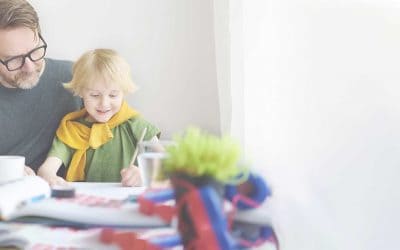A new adventure is about to begin for many families this September: junior kindergarten. Along with excitement there is anxiety, fear, hesitation and many more mixed emotions for parents and children. Fortunately, you can minimize stress and make for a happier day. Here’s some helpful tips to prepare yourself and your child for junior kindergarten.
First, breathe. Any new milestone is exciting and scary for both parents and their children, but watching your child grow is one of the most rewarding parts of parenting!
Then prepare your child by taking them to visit their new school. If there is an information session, I highly recommend attending with your child. This will allow you to gain more information about what you can expect as a parent, and your child can see where he/she is going to go. They may also allow your child to explore his/her new classroom.
Additionally, talk to your child about his/her new school, and what to expect when they are there. An example I can give to you is that your child will be required to bring their own lunch and must be able to open their own containers.
Remember that any previously-set expectations may have to change, and can be a source of stress. My son’s school asked that he be dropped off outside on the playground. We are not allowed to take him into the school. But he was used to me taking him into his preschool and dropping him off in his classroom, so it was very important that I explained that his routine would be changing. We have had talks about this so he understands and knows what to expect on his first day of JK.
Practice makes perfect. Try taking your child over to the school and practice how you will drop them off on that first day. This way they will know what to expect on that day. There will be no surprises and they will transition with more ease. You can also practice having your child eat out of their lunch box on the weekends, helping them learn how to open the containers with minimal assistance.
The school boards are big on independence; this is the time now over the next several weeks to encourage your child to get dressed, eat on their own, and use the bathroom with minimal to no assistance.
Tips to encourage independence:
- Be PATIENT.
- Allow extra time to get dressed. Use positive reinforcement, like, “great job putting your shoes on by yourself!” or “High five, you pulled up your pants all by yourself!”
- Reassure your child that they can do it by themselves.
Parents, remember that we have to stay positive and excited in order to make our children believe that this adventure is exciting and fun. If we demonstrate that this is going to be scary and stressful, then our children will feel this, feed off of it, and the experience may become negative.
Take home tips:
- Encourage
- Reassure
- Be positive
- Be patient
- PRACTICE, PRACTICE, PRACTICE
Good luck!










